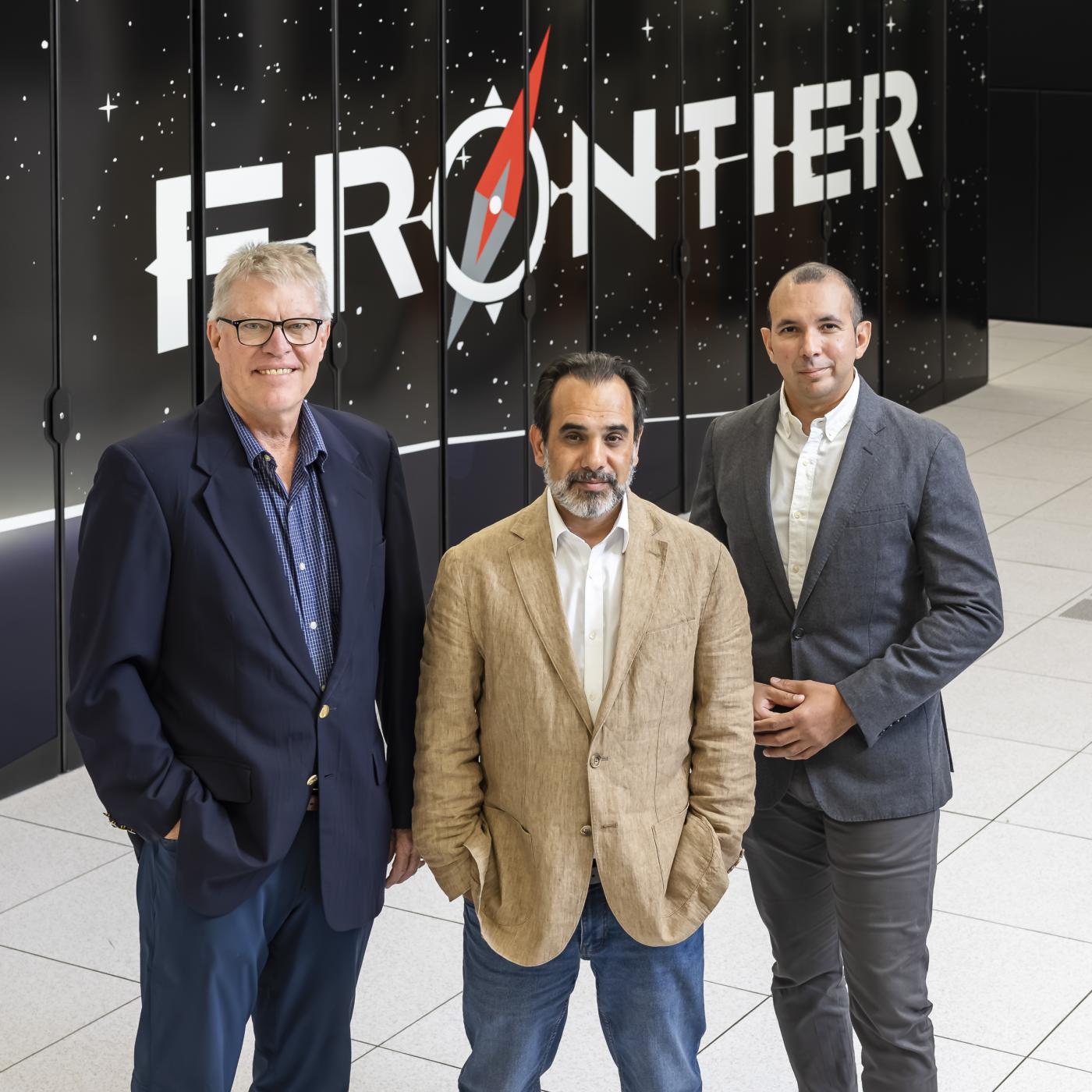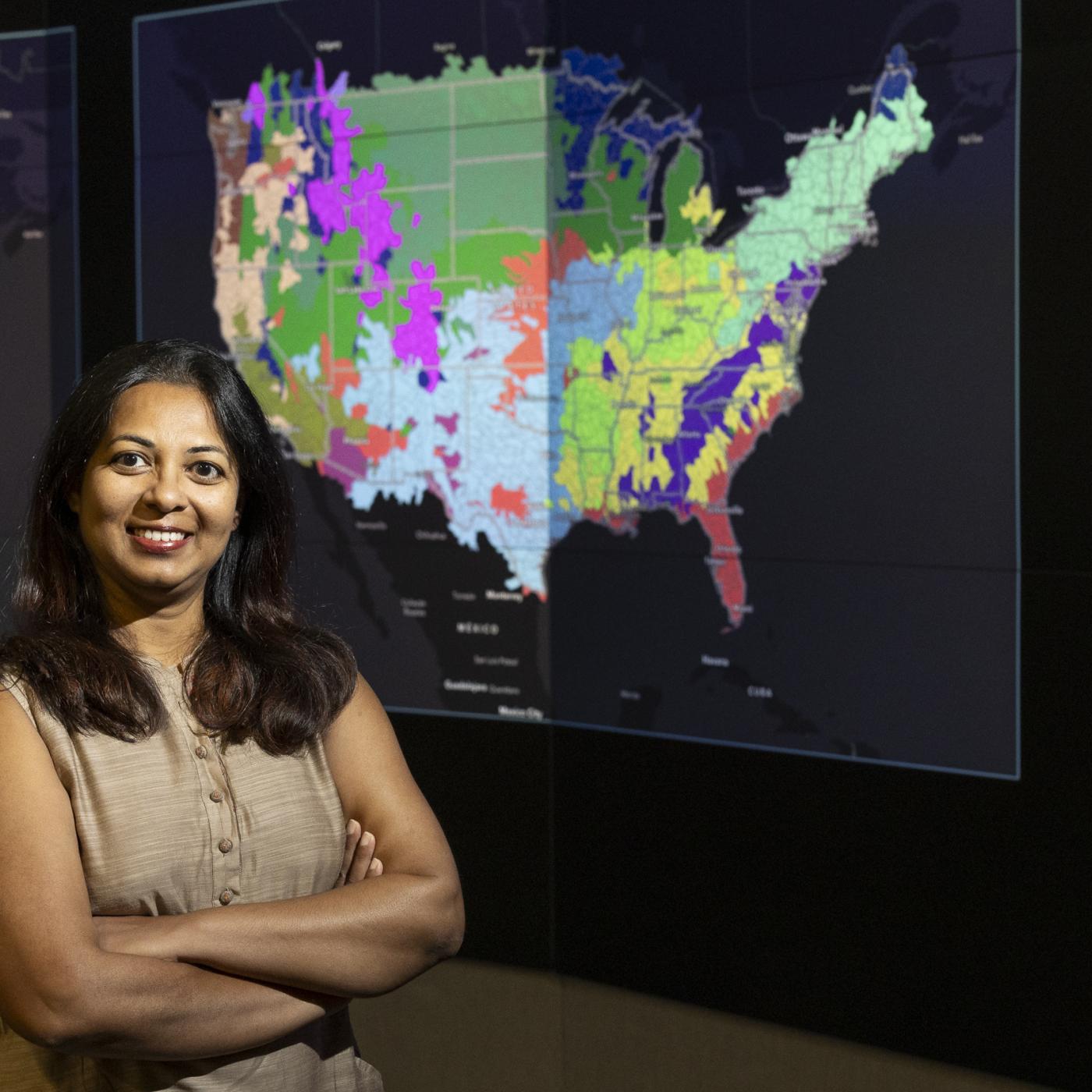
Filter News
Area of Research
- Biology and Environment (11)
- Clean Energy (35)
- Computational Biology (1)
- Electricity and Smart Grid (1)
- Functional Materials for Energy (2)
- Fusion and Fission (3)
- Materials (16)
- Materials for Computing (4)
- National Security (1)
- Neutron Science (5)
- Nuclear Science and Technology (1)
- Supercomputing (12)
News Type
News Topics
- (-) Coronavirus (21)
- (-) Energy Storage (45)
- 3-D Printing/Advanced Manufacturing (59)
- Advanced Reactors (13)
- Artificial Intelligence (57)
- Big Data (33)
- Bioenergy (57)
- Biology (66)
- Biomedical (34)
- Biotechnology (12)
- Buildings (26)
- Chemical Sciences (38)
- Clean Water (15)
- Climate Change (59)
- Composites (12)
- Computer Science (103)
- Critical Materials (6)
- Cybersecurity (20)
- Decarbonization (49)
- Education (1)
- Emergency (2)
- Environment (119)
- Exascale Computing (29)
- Fossil Energy (4)
- Frontier (28)
- Fusion (40)
- Grid (29)
- High-Performance Computing (57)
- Hydropower (5)
- Irradiation (1)
- Isotopes (37)
- ITER (3)
- Machine Learning (24)
- Materials (75)
- Materials Science (67)
- Mathematics (7)
- Mercury (7)
- Microelectronics (3)
- Microscopy (28)
- Molten Salt (2)
- Nanotechnology (28)
- National Security (52)
- Net Zero (9)
- Neutron Science (61)
- Nuclear Energy (69)
- Partnerships (25)
- Physics (36)
- Polymers (13)
- Quantum Computing (24)
- Quantum Science (35)
- Renewable Energy (1)
- Security (15)
- Simulation (36)
- Software (1)
- Space Exploration (13)
- Statistics (1)
- Summit (33)
- Sustainable Energy (56)
- Transformational Challenge Reactor (4)
- Transportation (37)
Media Contacts
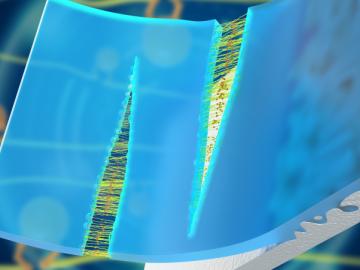
Research teams from the Department of Energy’s Oak Ridge National Laboratory and their technologies have received seven 2021 R&D 100 Awards, plus special recognition for a COVID-19-related project.
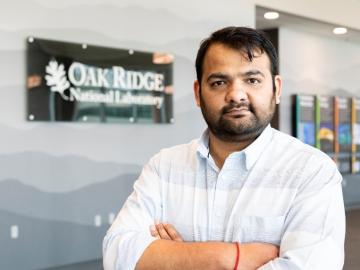
Marm Dixit, a Weinberg Distinguished Staff Fellow in the Emerging and Solid-State Batteries Group at ORNL, has been awarded a Toyota Young Investigator Fellowship for Projects in Green Energy Technology from the Electrochemical Society.
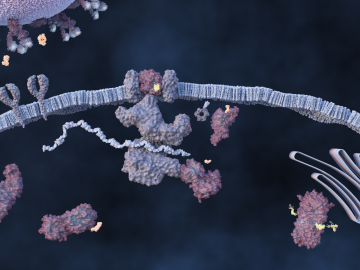
An ORNL-led team comprising researchers from multiple DOE national laboratories is using artificial intelligence and computational screening techniques – in combination with experimental validation – to identify and design five promising drug therapy approaches to target the SARS-CoV-2 virus.
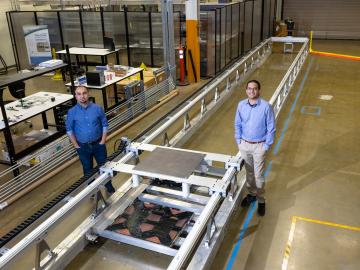
Consumer buy-in is key to the future of a decarbonized transportation sector in which electric vehicles largely replace today’s conventionally fueled cars and trucks.

Through a consortium of Department of Energy national laboratories, ORNL scientists are applying their expertise to provide solutions that enable the commercialization of emission-free hydrogen fuel cell technology for heavy-duty
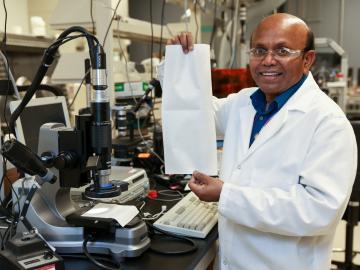
When COVID-19 was declared a pandemic in March 2020, Oak Ridge National Laboratory’s Parans Paranthaman suddenly found himself working from home like millions of others.
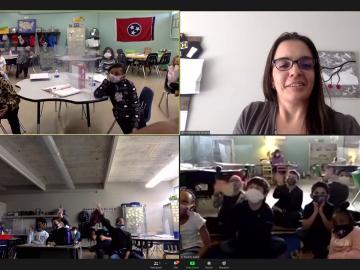
Twenty-seven ORNL researchers Zoomed into 11 middle schools across Tennessee during the annual Engineers Week in February. East Tennessee schools throughout Oak Ridge and Roane, Sevier, Blount and Loudon counties participated, with three West Tennessee schools joining in.
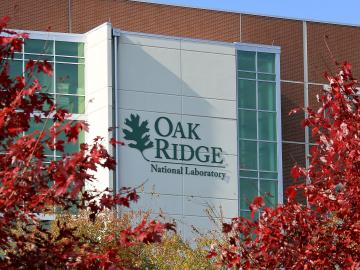
Thirty-two Oak Ridge National Laboratory employees were named among teams recognized by former DOE Secretary Dan Brouillette with Secretary’s Honor Awards as he completed his term. Four teams received new awards that reflect DOE responses to the coronavirus pandemic.
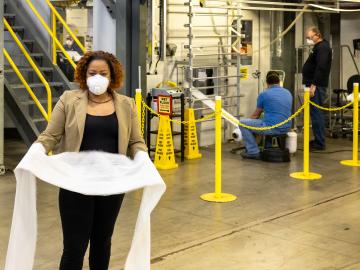
Three technologies developed by ORNL researchers have won National Technology Transfer Awards from the Federal Laboratory Consortium. One of the awards went to a team that adapted melt-blowing capabilities at DOE’s Carbon Fiber Technology Facility to enable the production of filter material for N95 masks in the fight against COVID-19.
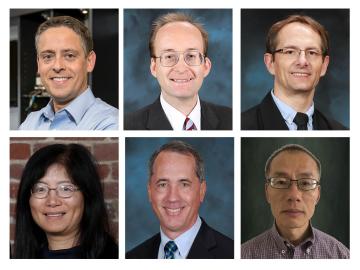
Six scientists at the Department of Energy’s Oak Ridge National Laboratory were named Battelle Distinguished Inventors, in recognition of obtaining 14 or more patents during their careers at the lab.


